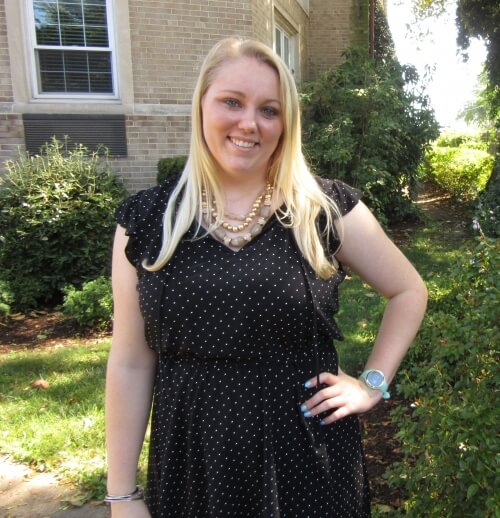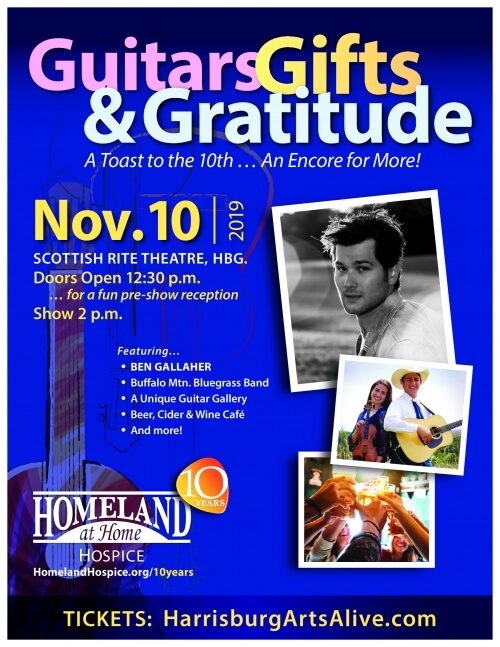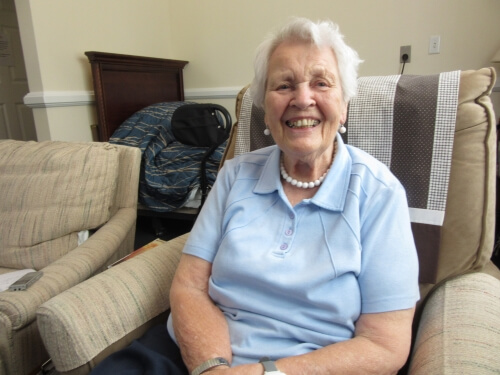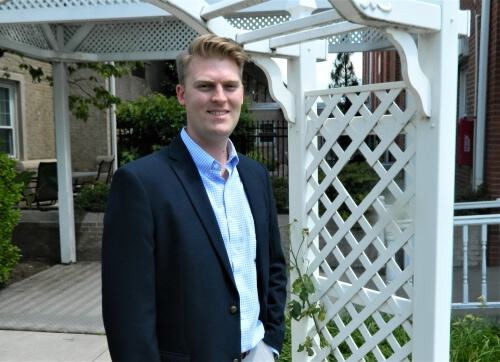New activities director Aleisha Connors: Enriching the quality of life at Homeland

Aleisha Connors, new Director of Activities at Homeland
A Homeland resident once offered some advice that Aleisha Connors took to heart.
“Live every day as an adventure,” the resident said. “You only live once. Always take time for yourself. Remember where you came from and why you’re here.”
Aleisha’s adventures have taken her to France, Barcelona, and Ireland, while her professional journey brought her to the Homeland Center, where in August she became the activities director. In her new job, she oversees the vibrant array of activities in all three of Homeland’s continuing care units, Ellenberger, Skilled Nursing and Personal Care.
It’s a role she feels was made for her.
“I can honestly say this is the perfect job for me,” she says.
Aleisha assumed the activities director post after more than a year and a half coordinating activities in the Ellenberger dementia unit and then in personal care. Working with the elderly has been her passion since helping to care for her grandparents. She also volunteered at retirement homes when she was young.
“You can make their day just by saying hello,” she says. “I love hearing their stories, of how they grew up and how they raised their families.”
Aleisha grew up in Mechanicsburg, attending St. Joseph School and Trinity High School. She entered St. Francis University, in the western Pennsylvania town of Loretto, as a physical therapy major but graduated with a degree in public health.
One of her internships brought her to Homeland through her mother, a Pennsylvania Department of Health administrator whose career included nursing home surveying. After graduation, she knew she wanted to work in long-term care.
When she saw a job posting for a Homeland activities coordinator, she seized the opportunity.
“I absolutely love what I’m doing,” she says. “I love the residents. I’m here for them.”
As activities coordinator for Ellenberger and personal care, Aleisha learned the varied needs of residents at different phases of their lives. For Ellenberger residents, she developed activities that opened pathways to treasured memories, to “help the brain function and bring back memory recall.”
Personal care residents, she learned, enjoy hands-on activities, trips, and Homeland’s weekly happy hours – “every Friday around 3 o’clock.”
Now, she brings to all activities a firm belief in their power to deliver excellent quality of life touching on its every aspect – “mentally, physically, emotionally, psychologically, spiritually.”
Aleisha always strives to incorporate family members into activities, even if it’s as simple as updating them on the pursuits their loved ones enjoyed each day.
“Family involvement makes a huge difference in the lives of our residents,’’ she says. Aleisha remembers an Ellenberger resident who loved talking about her son, and when he visited, “her eyes lit up. She would pop up and give him a big hug. It just melts my heart.”
Aleisha’s own, close-knit family plays a significant role in her life. Their extensive travels instilled in her a taste for new places around the globe. During college, she spent three months studying in France. In Ireland, the home of her ancestors, she cherished the Cliffs of Moher.
Homeland is “a happy place,” and she never experiences a morning where she has to drag herself into work. Her appreciation for Homeland is rooted in its residents, families, and staff.
“It’s the homey atmosphere and the quality of care,” she says. “The way we treat residents here is wonderful. It’s a gentle environment, a great atmosphere. You can feel it walking down the hallway when you say hello to everyone.”
As she started her new position at Homeland, she also began pursuing an online master’s degree in public health from St. Francis University. She hopes to complete it in two years and to “continue growing with Homeland. I know I see myself here.”







